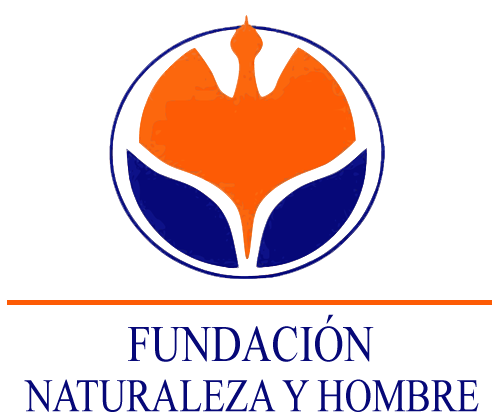Conservation of habitats and species in the western Iberian Peninsula, in 10 sites of the Natura 2000 Network, with actions aimed to improve habitats through the creation of a Club of Landowners, Club members are committed to the conservation of the natural values of the guarded spaces and the improvement of the connectivity between them.
The western Iberian Peninsula Club of Estates is open to include all interested owners of properties in the Natura 2000 Network.
Membership of the club provides a number of benefits: actions for conservation without cost; plan of good practices in livestock, hunting and recreational purposes; monitoring of species and habitats; permanent assistance for conservation; competitive advantages for farmers and district level leadership. The objective is a commitment to eliminate improper practices.
An impact assessment of the effects of conservation actions on the local socio-economic environment how far the development of the whole project affects local society. This is essential in order to encourage the population to understand nature conservation so that they do not interpret it as a strange and external agent that merely predetermines land uses.
LIFE Programme
LIFE is the EU’s financial instrument supporting environmental, nature conservation and climate action projects throughout the EU. The general objective of LIFE is to contribute to the implementation, updating and development of EU environmental policy and legislation by co-financing pilot or demonstration projects with European added value. LIFE began in 1992. During this period, LIFE has co-financed some 3954 projects across the EU, contributing approximately €3.1 billion to the protection of the environment.
Projects financed by LIFE+ must satisfy the following criteria:
- Projects must be of EU interest, making a significant contribution to the achievement of the general objective of LIFE+.
- They must be technically and financially coherent and feasible and provide value for money.
- Where possible, projects financed by LIFE+ should promote synergies between different priorities under the sixth Environmental Action Programme, and integration.
Proposals had to be eligible under one of the programme’s components:
LIFE Nature & Biodiversity (sub-programme for Environment).
It will co-finance action grants for best practice, pilot and demonstration projects that contribute to the implementation of the Birds and Habitats Directives Directives and the Union Biodiversity Strategy to 2020, and the development, implementation and management of the Natura 2000 network.
LIFE Environment & Resource Efficiency: (sub-programme for Environment):
It will co-finance action grants for pilot and demonstration projects to develop, test and demonstrate policy or management approaches, best practices and solutions, including development and demonstration of innovative technologies, to environmental challenges, suitable for being replicated, transferred or mainstreamed, including with respect to the link between the environment and health, and in support of resource efficiency-related policy and legislation, including the Roadmap to a Resource Efficient Europe; and to improve the knowledge base for the development, implementation, assessment, monitoring and evaluation of Union environmental policy and legislation, and for the assessment and monitoring of the factors, pressures and responses that impact on the environment within and outside the Union.
LIFE Environmental Governance & Information (sub-programme for Environment):
It will co-finance action grants for information, awareness and dissemination projects to promote awareness raising on environmental matters, including generating public and stakeholder support of Union policy-making in the field of the environment, and to promote knowledge on sustainable development and new patterns for sustainable consumption; to support communication, management, and dissemination of information in the field of the environment, and to facilitate knowledge sharing on successful environmental solutions and practice, including by developing cooperation platforms among stakeholders and training; and to promote and contribute to more effective compliance with and enforcement of Union environmental legislation, in particular by promoting the development and dissemination of best practices and policy approaches.
LIFE Climate Change Mitigation (sub-programme for Climate Action):
It will co-finance action grants for best practice, pilot and demonstration projects that contribute to the reduction of greenhouse gas emissions; that contribute to the implementation and development of Union policy and legislation on climate change mitigation, including mainstreaming across policy areas, in particular by developing, testing and demonstrating policy or management approaches, best practices and solutions for climate change mitigation; that improve the knowledge base for the development, assessment, monitoring, evaluation and implementation of effective climate change mitigation actions and measures and that enhance the capacity to apply that knowledge in practice; that facilitate the development and implementation of integrated approaches, such as for climate change mitigation strategies and action plans, at local, regional or national level; and that contribute to the development and demonstration of innovative climate change mitigation technologies, systems, methods and instruments that are suitable for being replicated, transferred or mainstreamed.
LIFE Climate Change Adaptation (sub-programme for Climate Action):
It will co-finance action grants for best practice, pilot and demonstration projects that contribute to supporting efforts leading to increased resilience to climate change; that contribute to the development and implementation of Union policy on climate change adaptation, including mainstreaming across policy areas, in particular by developing, testing and demonstrating policy or management approaches, best practices and solutions for climate change adaptation, including, where appropriate, ecosystem-based approaches; that improve the knowledge base for the development, assessment, monitoring, evaluation and implementation of effective climate change adaptation actions and measures, prioritising, where appropriate, those applying an ecosystem-based approach, and to enhance the capacity to apply that knowledge in practice; that facilitate the development and implementation of integrated approaches, such as for climate change adaptation strategies and action plans, at local, regional or national level, prioritising, where appropriate, ecosystem-based approaches; and that contribute to the development and demonstration of innovative climate change adaptation technologies, systems, methods and instruments that are suitable for being replicated, transferred or mainstreamed. See also the LIFE section of the DG Climate Action web-site.
LIFE Climate Governance and Information (sub-programme for Climate Action):
It will co-finance action grants for information, awareness and dissemination projects that promote awareness raising on climate matters, including generating public and stakeholder support of Union policy-making in the field of the climate, and to promote knowledge on sustainable development; that support communication, management, and dissemination of information in the field of the climate and to facilitate knowledge sharing on successful climate solutions and practice, including by developing cooperation platforms among stakeholders and training; and that promote and contribute to more effective compliance with and enforcement of Union climate legislation, in particular by promoting the development and dissemination of best practices and policy approaches. See also the LIFE section of the DG Climate Action web-site.
More information in: http://ec.europa.eu/environment/life/index.htm


Los comentarios están desactivados.